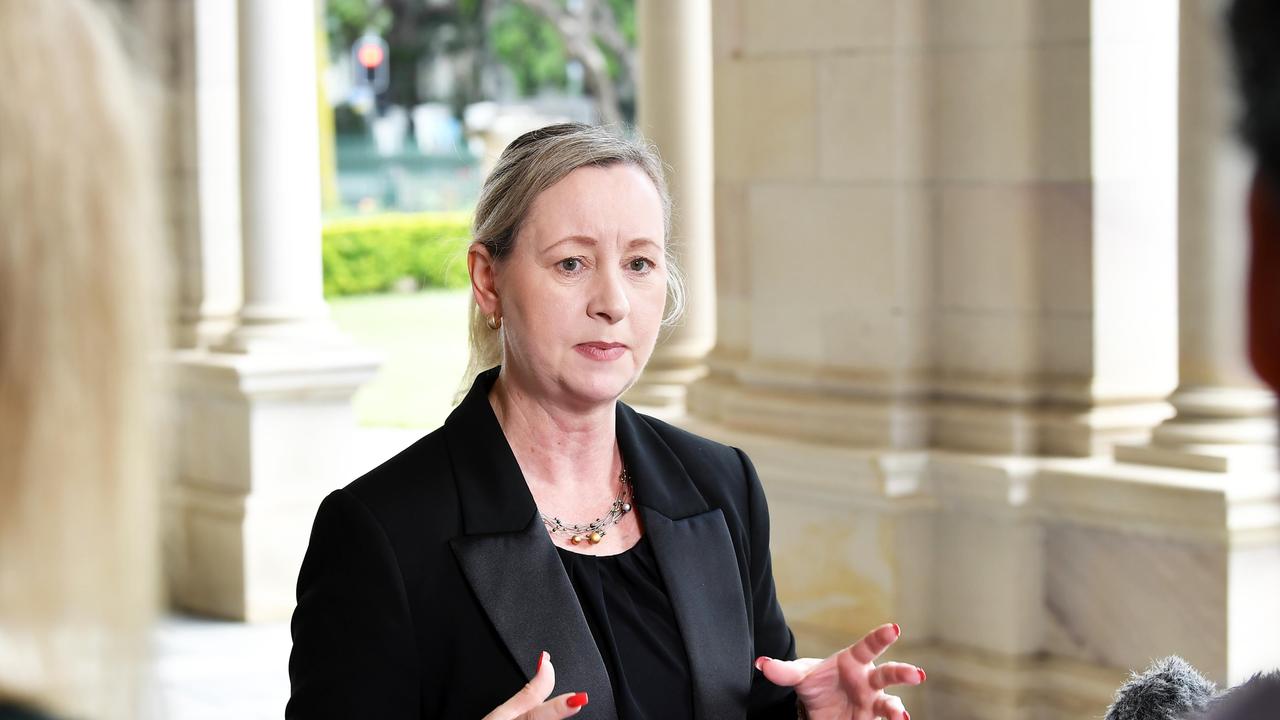Critical corruption overhaul to kick in by early 2024, Attorney-General Yvette D’Ath says
Critical law changes needed to unshackle the state’s corruption watchdog and potentially line up its powers with other jurisdictions could be ready by early 2024 Attorney-General Yvette D’Ath says.
QLD Politics
Don't miss out on the headlines from QLD Politics. Followed categories will be added to My News.
Critical law changes needed to unshackle the state’s corruption watchdog and potentially line up its powers with other jurisdictions could be ready by early 2024 Attorney-General Yvette D’Ath has said.
But the need for broad legislative reform of the Crime and Corruption Commission means the state’s promised shield laws for journalists won’t be progressed this year as originally promised.
CCC boss Bruce Barbour on Friday again called for law changes, in the wake of a precedent-setting High Court decision, to ensure it can continue to do its job and publish findings or recommendations from corruption probes.
He said the watchdog was “anxious” to have those amendments through as quickly as possible, but also noted it was an opportunity to address wider issues than just the reporting of corruption investigations.
The High Court of Australia in September ruled the contents of a Crime and Corruption Commission report into former public trustee Peter Carne detailing allegations of misconduct should not be published.

According to the CCC the precedent-setting decision meant it had “no such power” to make vital reports public — nullifying abilities the watchdog had believed and relied on to do its job for the last 25 years.
Mr Barbour confirmed the CCC had so spent $91,953 on legal fees in the Trad matter and $571,733.41 in the Carne matter.
Ms D’Ath said the state government would release the cost of indemnifying Ms Trad once cost-sharing arrangements were finalised in court.
Mr Barbour confirmed he had met twice with Ms D’Ath about the issue so far. He said there was an opportunity to consider changes to the CCC beyond just the impact of the Carne matter.
“The reason it’s a complicated issue is because there are a range of subtleties that go beyond just the simple tabling of the report,” he said.
“One of the areas that needs to be hopefully will be addressed is the issue of parliamentary privilege, which has been left hanging to some extent as a result of the Carne decision.
“But I was also alluding to the fact that this is an opportunity to actually not just simply remedy what we believe is a problem, but to actually enhance the system so that it is more consistent with systems and jurisdiction in other states.”

Ms D’Ath said the government was supportive in principle to the CCC being able to publish its findings, and the issue was about working through the framework to make it happen.
“It’s important to understand there is actually no uniform rules across this country. There is commonality, but not uniformity,” she said.
“And so looking at what other jurisdictions do, because the reality is that our laws do not give us any guidance, because there was no power whatsoever to report in this way.
“And so we’ve actually got to develop what that model should look like.”
Ms D’Ath said shield laws to protect journalists from being compelled to give up their sources including in coercive CCC hearings would be wrapped into broader watchdog reform.
“It doesn’t make sense to introduce one bill that addresses all of those things and not address this other issue. So there may be some delay. I wouldn’t expect a long delay, but there may be some delays.”
She said she “hoped” it would be ready by early 2024.





